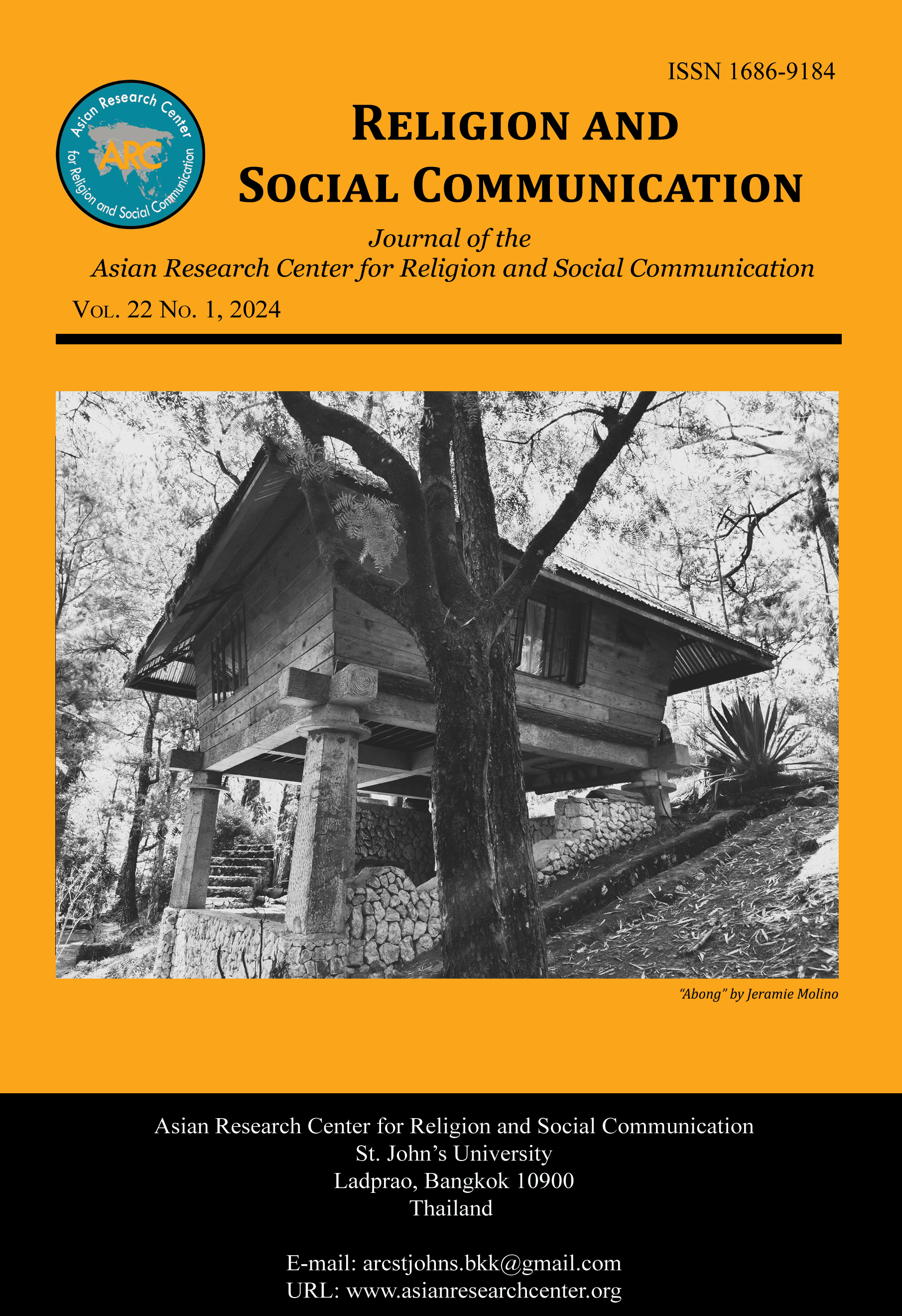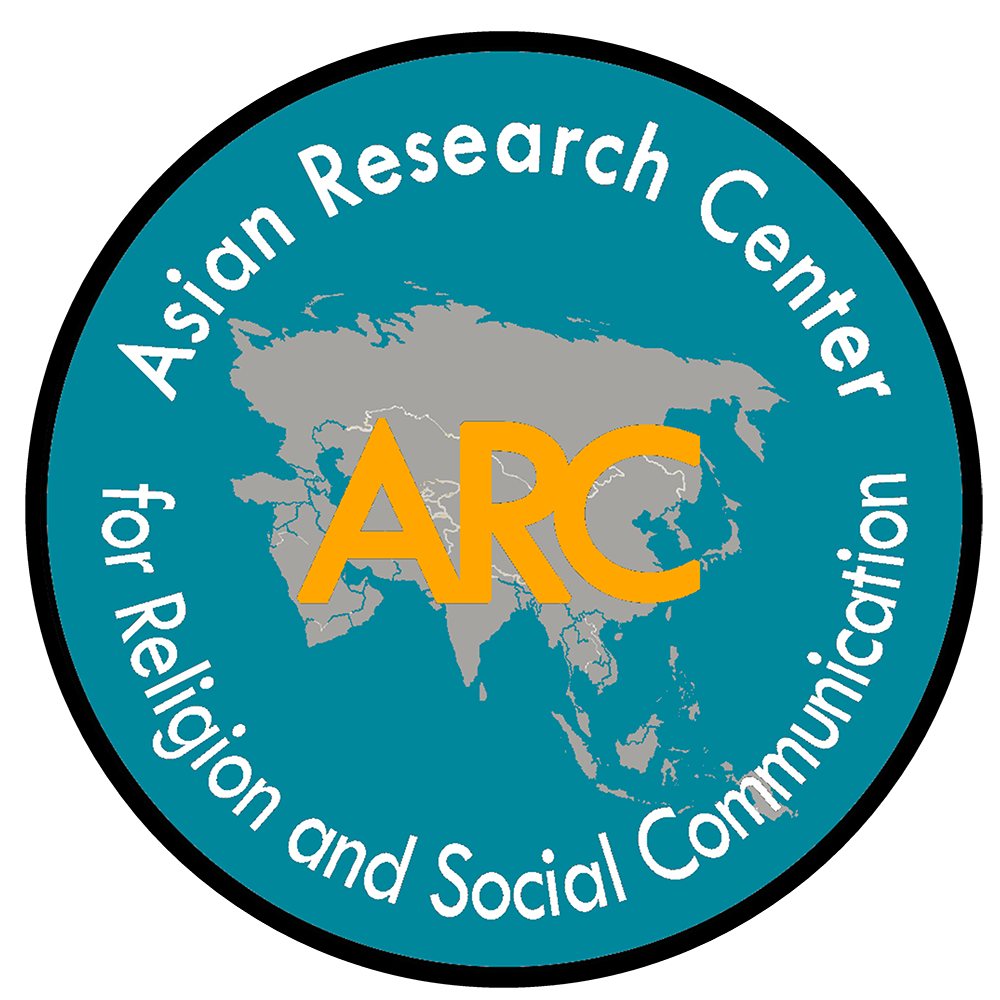[BOOK REVIEW]Experimenting with Religion: The New Science of Belief
RELIGION AND SOCIAL COMMUNICATION VOLUME 22, NO. 1 (2024)
ISSN 1686-9184
Author
Ivan Efreaim A. Gozum
Book Reviewed
Jonathan Jong. Experimenting with Religion: The New Science of Belief. Oxford, UK: Oxford University Press, 2023. 186 pp. ISBN 9780190875541 (Hardback).
PAGES 243-246
DOI: https://doi.org/10.62461/IEG220124
Religion and science are often presented as two opposing and divergent fields. Some of the divergences that science and religion share are methodology, scope of inquiry, and worldview. Religion’s methodology often relies on faith, revelation, and sacred texts as a way to acquire knowledge. On the other hand, science uses empirical investigation, experimentation, and the scientific method. The scope of religion is the metaphysical, the spiritual, and questions about the divine, which frequently lie beyond the grasp of scientific investigation and human perception. In contrast, science focuses on natural phenomena and observable realities. In addition, religion may contain supernatural or transcendent components in its worldview, such as the presence of a deity or deities, miracles, and the afterlife. Science promotes naturalistic worldviews by stressing natural causes and explanations for phenomena.
However, science and religion also have convergences. The convergences between the two include the quest for understanding, existential questions, and the element of wonder. Moreover, science and religion both address fundamental existential problems. Therefore, they share a common origin in wonder, as it is through wonder that both science and religion inquire about the cosmos, the intricacies of life, and the complexities of the natural world.
To examine the potential reciprocal utility of each discipline, Jonathan Jong wrote the book titled Experimenting with Religion: The New Science of Belief. In the book, Jong used the scientific approach to observe, understand, and explain people who believe in a religion. The author emphasized that his book is not really a religious book; instead, it is a work that delves into the subject of religion. This book focuses on experimental psychology and its application by a group of experimental psychologists in the study of religion as a human phenomenon. Experimenting with Religion is a fascinating reflection on the quest for understanding, as this is one of the convergences of science and religion. Utilizing the scientific approach presented in the book provides an opportunity to gain insights into the reasons behind people’s beliefs and how these beliefs form. Surprisingly, in the book, the primary focus is not on the research subjects themselves, but rather on the scientists conducting the studies. This twist provides a complex understanding of how the exploration of belief sheds light on the human mind’s proclivity for transcendent ideas. Finally, this book demonstrates that psychological studies that test spiritual beliefs are creative endeavors that hold the potential to reveal truths about the human mind’s predilection for religious concepts, provided that we remain adaptable, evolve, and able to learn.
In the initial chapter of the eight-chapter book, Jong inquired into the workings of the human mind, exploring how it facilitates belief in faith stories. According to Jong, this question is essential, as it is through addressing this question that psychologists can effectively intervene. Jong remarked that the experimenters in each situation are driven by curiosity about the origins of religion in human thinking. To explore this, psychologists must delve deep into both our minds and the religious traditions that have constructed their theoretical frameworks upon the rich psychological ground. This endeavor has been met with varying degrees of success, as the widespread historical and cultural presence of religion suggests.
The remaining chapters are devoted to unraveling the inner workings of the human mind in the context of religious discourse. Jong examined the influence of intuitive and analytical thinking on individuals’ belief in God. This exploration is essential because it lays the foundation for a discussion on how our thought processes can shape our belief in God. Having set the foundation, Jong proceeded to discuss various factors that influence one’s cognitive processes in matters of religion. He explained how children’s approval or disapproval of teleological questions can impact their predisposition toward becoming believers or atheists.
Additionally, Jong discussed the concept of divine simplicity, raising inquiries about how humans conceive of a deity with such perfection. His exploration involved looking at the possible questions that might lead to second-guessing. Moreover, Jong engaged in a discussion on souls and the idea of the afterlife in relation to children, offering a fresh perspective on how humans might develop their faith. Moreover, Jong conducted a study involving rituals and the concept of death to assess their influence on religiosity and spirituality in individuals.
In the conclusion, Jong stated that the purpose of the book is to share stories of individuals whose interests guided them into this realm of research. It also provides insights into what it’s like to engage in such research, utilizing the tools at our disposal as a means of comprehending the belief in a deity. Psychological research can be a way to grasp the intricacies of how people believe and the underlying reasons behind their beliefs.
Comprehending the phenomenon of religion, which transcends the physical realm, can indeed be challenging. It is difficult to grasp the unlimited with our finite life and cognitive capacities. However, Jong’s book has effectively contributed to advancing discussions on the psychology of religion. As he emphasized, the core purpose of doing the book and venturing into the realm of seeking empirical evidence for religion is rooted in the pursuit of understanding. It underscores the fundamental role of psychologists in unraveling the mechanisms of comprehension, even when dealing with such complex and abstract subjects.
This book is a valuable addition to the ongoing discourse on religion and science. Though the two fields often collide due to their differences in method and worldview, the author did a commendable effort at bridging the gap between the two. This book is highly beneficial for researchers, students, and readers who are interested in the field of psychology of religion. It offers valuable insights into the activities and endeavors of researchers engaged in the study of religion. New students in the field of psychology will also find this book to be helpful as it illustrates the process by which psychologists pose questions and provide answers. The approach outlined in this book serves as an introductory guide for psychology students. One of Jong’s objectives, in my view, was successfully achieved as he left readers with an understanding of science as a collective human effort, and even a social undertaking, aimed at comprehending both the cosmos and our own existence. Hopefully, more books like this will be written by future scholars as they traverse about the beauty of the human mind and the intricacies of reality.





![[Book Review]David Thang Moe. Beyond the Academy: Lived Asian Public Theology of Religions.](https://asianresearchcenter.org/storage/image/2025/06/cover-for-web-1749467974.jpg.160x96.webp)
![[Book Review] Mary Frohlich. The Heart at the Heart of the World: Re-visioning the Sacred Heart for the Ecozoic Era](https://asianresearchcenter.org/storage/image/2025/01/cover-final-1735893887.png.160x96.webp)